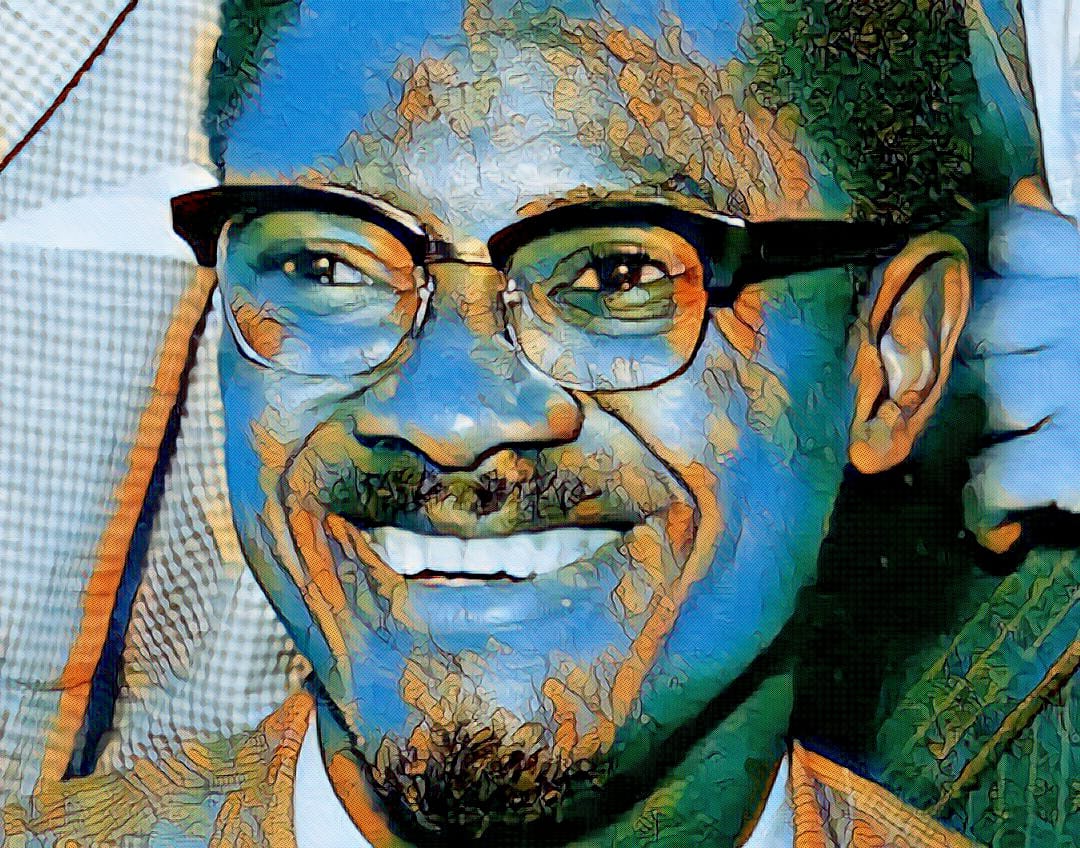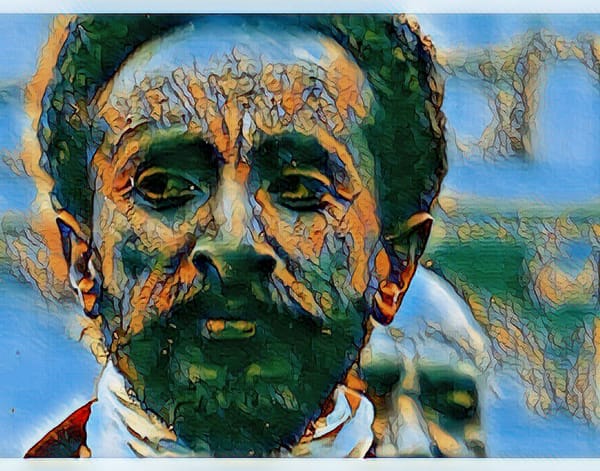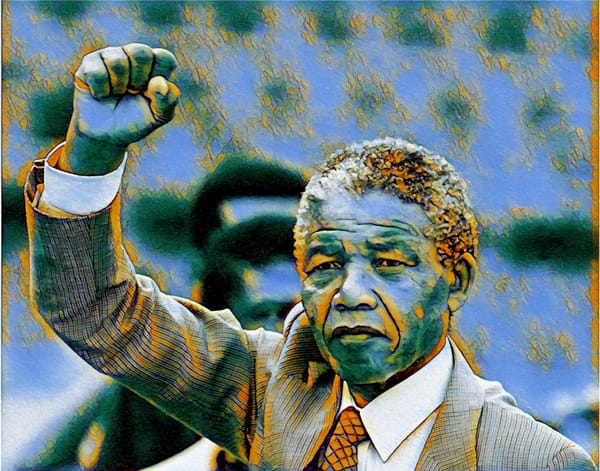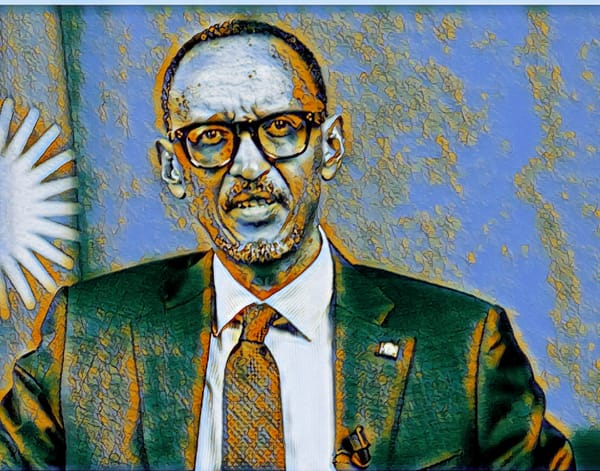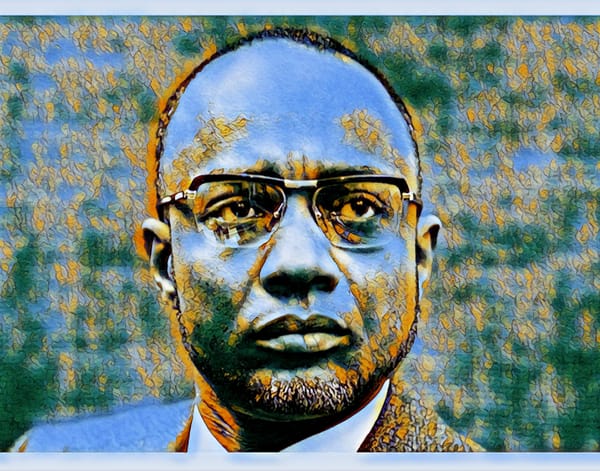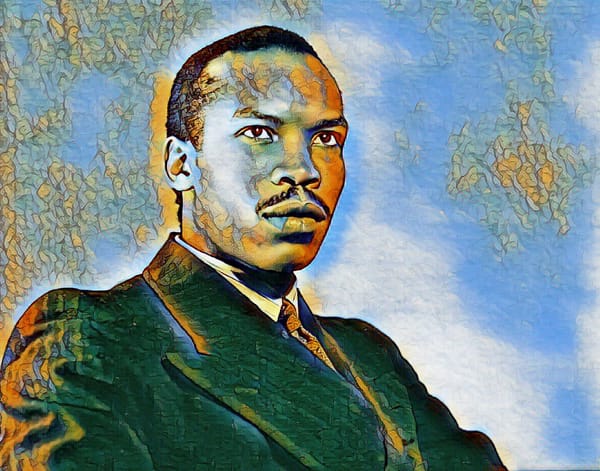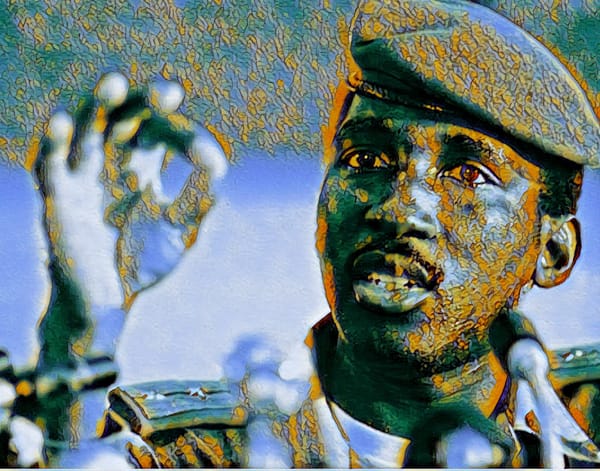Unflinching Courage in the Heart of Africa

If Fearlessness Was A Person
He was the epitome of what it means to be a man of unwavering resolve. A man who stood not just for the Congo, but for Africa, embodying the continent's determination for independence, dignity and self-reliance. Today, his legacy lives on, his essence continues to soar, defying the boundaries of the grave.
The journey began on July 2nd, 1925, in the distant village of Onalua in what was then the Belgian Congo; that the luminous soul, Patrice Emery Lumumba was born. His formative years, set against the harrowing backdrop of colonial rule, were foundational in shaping his worldview. Witnessing the relentless exploitation of his people and the ruthless plundering of his homeland's riches for the benefit of a foreign power, a heavy burden pressed upon his young heart. This harsh reality fostered an unwavering sense of destiny— a profound calling urging him to rise and spearhead the battle for his nation's long-overdue independence.

From an early age, Lumumba's intellectual curiosity and eloquence were evident. Despite the limitations placed on education for Congolese under colonial rule, he was one of the few Congolese of his generation to receive formal education; attending a Protestant mission school and later a Catholic mission school. Although his formal education was limited– a typical phenomenon of the Belgian colonial policy, which did not prioritise higher education for the Congolese; Lumumba was self-taught. He was a voracious reader, devouring books on history, global politics, and philosophy. These readings, coupled with the realities of colonial life, reinforced his deep sense of purpose and desire to contribute to the liberation of his people.
The Imperialistic Idea Of Dominating People
Lumumba was born in a generation radically oblivious to the sanctity of human dignity. An age far from even the whisper of human rights. Subjugation, exploitation and plundering were not only celebrated, they were considered a badge of honour. The agony inflicted on many was the foundation upon which the elite of the time built their empires; a system in which the value of human life was measured only against what it could yield in power and wealth. In truth, Lumumba’s era poses a stark, haunting question: Must humanity be ensnared in a cycle where the prosperity of some necessitates the misery of many?
Beneath the opulent chandeliers of Berlin's grandiose halls, a monumental event unfolded that would redefine Africa. The year was 1885, a convocation of Europe's Elite gathered for what came to be known as the Berlin Conference of 1885. Arguably the longest lasting conference till date, it was a three-month long deliberation with one agenda— Africa. During this fateful gathering; without a single African voice present, the Congo, rich in its lush greenery and natural treasures was designated the personal property of Belgian King Leopold I.
This resistance is not just an act of defiance; it is a celebration of our very nature. In that, deeply woven into the very fabric of basic human decency, there lies timeless maxim: treat others as you wish to be treated. It's a guiding principle that illuminates a fundamental yet basic truth– true dominance is found not in the imperialistic and colonial pursuits of subjugating others.
"Any people that oppresses other people is neither civilised nor Christian". - Patrice Lumumba
Rather, true dominance is a spectacle so mesmerising, it compels us to gather from near and far, drawn like moths to a flame of sheer brilliance. We find ourselves willingly parting with fortunes, just for the chance to witness such excellence up close, to bask in the glow.
We see this in the electrifying energy of Nikola Tesla's inventions, in the breathtaking finesse of Michael Jordan on the basketball court, in the groundbreaking work of Gladys Mae West, whose mathematical genius laid the groundwork for the GPS technology that revolutionised the way we navigate our world, in the pioneering discoveries of Marie Curie, whose research on radioactivity paved new paths in science and medicine, in the relentless drive of Kobe Bryant to be the best, in the profound insights of Albert Einstein that reshaped our understanding of the universe, and of course in the skilled hands of Dr. Ben Carson, whose innovations in neurosurgery have saved countless lives and inspired a new generation of medical professionals.
Masterminding Unity
By 1958, the whispers of independence had grown into a chorus, and at its helm was Lumumba and his Mouvement National Congolais (MNC). The founding of the MNC was a quest to weave together the disparate threads of the Congolese identity into a single, indomitable force for independence. Lumumba, with his magnetic charisma and unshakable conviction, envisioned a Congo that transcended tribal lines, a nation united not by geography or language, but by a shared dream of sovereignty and self-determination. This vision was revolutionary, a lighthouse in a landscape darkened by centuries of exploitation.

Under Lumumba's leadership, the MNC became the first political movement to galvanise the whole of Congo. His message resonated far and wide, reaching from the vibrant heart of Kinshasa to the most distant villages cradled by the dense jungle. He spoke a language of unity that transcended the artificial barriers of tribalism, reaching into the hearts of his countrymen and awakening a sense of national identity.
"We prefer freedom with poverty to wealth with tyranny". - Patrice Lumumba
The MNC's electoral victory in May 1960 was not merely a political milestone; it was a resounding affirmation of the Congolese people's trust in Lumumba's vision for a unified, sovereign Congo. At the age of 34, Lumumba ascended to the highest office in the land, becoming the first Prime Minister of an independent Congo. His rise to this position at such a youthful age was emblematic of the seismic shifts underway across Africa—a continent eager to redefine itself on its own terms. Lumumba's leadership, marked by a profound sense of duty and an unwavering belief in the Congo's potential, underscored a new era of African governance, one led by the very generation that had dared to dream of independence.
A Leader With A Lion’s Heart
June 30, 1960, was meant to be a day of celebration, it was the dawn of Congolese Independence Day; a formal acknowledgment of the Congo's transition from a Belgian colony to an independent nation. The official ceremonies were meticulously planned, featuring speeches from Belgian King Baudouin and Congo's first President, Joseph Kasavubu; painting a picture of a harmonious transition, a peaceful handover of power. It was a ceremony fully packed with diplomatic niceties. Yet, the reality on the ground was starkly different. It was a reality marked by years of oppression, exploitation, and struggle; a reality Lumumba, ever the voice of the voiceless, refused to let go unacknowledged.
Without an official invitation to speak, Lumumba defying protocol and the carefully laid plans of both Belgian dignitaries and the newly formed Congolese elite, stepped forward. His speech was not one of conciliation or gratitude toward the departing colonial administrators; it was a declaration of the injustices and brutalities endured by the Congolese people under Belgian rule. Lumumba spoke of "humiliating slavery, which was imposed upon us by force."
He highlighted the sacrifices of the Congolese people in their fight for independence, a battle waged not just against chains but against the denigration of their humanity.
"Africa is not poor, it is only poorly managed". - Patrice Lumumba
These audacious acts of courage characterised the Congo’s first prime minister’s tenure. His brave refusal to adhere to the scripted silence at Congo's Independence Day, his pivotal move to secure alliances with the United Nations, his purposeful journey to New York to forge global partnerships, his critical engagement with the Soviet Union for economic and military support, and his tireless efforts to unify the diverse factions within the Congo, collectively paint the portrait of the Congo’s Patrice Emery Lumumba.
Few Great Sources
- Book - Lumumba Speaks, The Speeches and Writings Of Patrice Lumumba 1958 - 1961
- Documentary - Lumumba (2000)
- Wikipedia - Berlin Conference Nov 15, 1884 – Feb 26, 1885

